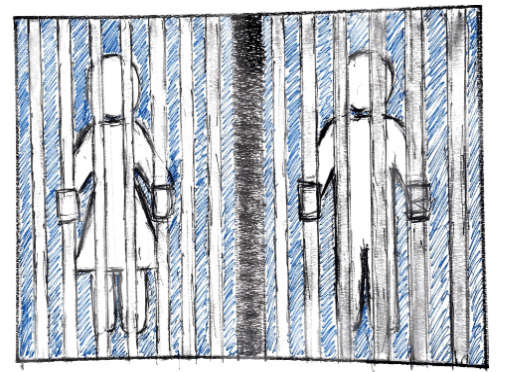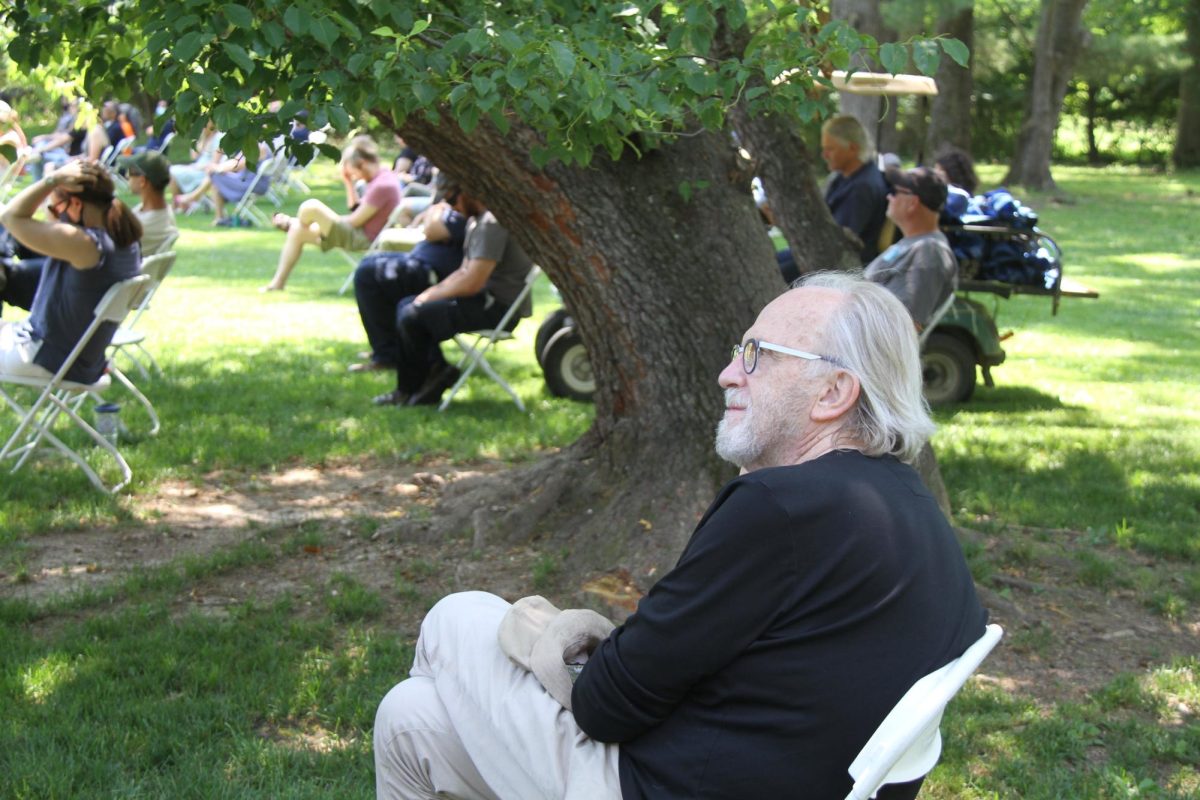Bathroom Bill is a step in the wrong direction

Lydia Pamudji
May 24, 2016
When I confront legislative tragedies like North Carolina’s House Bill 2, I am reminded of a quote in Jerome Lawrence and Robert E. Lee’s Inherit the Wind, a dramatization of the Scopes Trial of 1925. Fictitious lawyer Henry Drummond, defending a school teacher on trial for including Darwinian evolution in his curriculum, warns his opponent, Matthew Harrison Brady, that “All motion is relative. Perhaps it is you who have moved away—by standing still.”
The upshot of Drummond’s insight is that by adhering to his outworn creationist belief and refusing to acknowledge the advances of contemporary science, Brady departed from modern society’s mores. By stubbornly resisting progress, he fell behind.
Few actions have resisted social progress in recent times more than the Public Facilities Privacy and Security Act. Also known as House Bill 2 (HB2), or the “bathroom bill,” the act was passed by the North Carolina House of Representatives in March. Overturning anti-discrimination protections for members of the transgender community, it prohibited transgender individuals from using government restrooms different than their biological sexes. HB2 also prevents municipalities in North Carolina from enacting anti-discrimination legislation, establishing a minimum wage, or regulating child labor. Furthermore, it criminalizes the issuance of laws to enforce anti-discrimination statutes in state courts.
The act was largely a response to an ordinance from the Charlotte City Council in February that forbids discrimination against non-binary citizens in public facilities and private services. Charlotte’s ordinance was scheduled to go into effect in April, forcing members of the House to quickly preempt the statute just days before the scheduled date.
Calling the passage of the act “disappointing” is an understatement. Proponents of HB2 tragically persist in misconstruing the facts surrounding restroom use, and they marginalize one of the United States’ most vulnerable, mistreated minorities. They claim that HB2 protects the privacy and safety of women using public restrooms who might be sexually assaulted by predators disguised as transgender women.
Asserting that the act is a reasonable protective measure, North Carolina Governor Pat McCrory argued, “We need to respect the privacy of women and children and men in a very private place, and that’s our restrooms and locker rooms. To have many different cities and towns coming up with their ordinance in how to deal with restrooms and locker rooms is, I don’t think, good for our state.” He later insisted that HB2 does “not [take] away any rights.”
Sadly, many others around the state agree. According to a WRAL.com study, 56 percent of North Carolinians agree with prohibiting transgender citizens from using bathrooms that correspond with their self-identified gender. The same percentage believe that permitting transgender individuals to use their chosen restrooms poses a significant threat to women.
But these beliefs are simply founded in myth, with no factual evidence to support them. Chase Strangio, staff attorney for the American Civil Liberties Union, vehemently denies that granting transgender Americans access to their rightful bathrooms poses a threat to cisgendered women. On the contrary, transgender citizens are more often victimized; transgender men using female restrooms “experience a ton of violence…and are told they don’t belong there.” Ultimately, Strangio affirms, “All the data and all the evidence show that protecting transgender people only increases public safety.”
Most of the vitriol against the transgender population actually stems not from a rational fear of sexual harassment in public restrooms, but from a fear of the transgender community itself. In flouting the rights and safety of transgender individuals and conflating them with rapists, supporters of the act reveal the pervasiveness of prejudice against the non-binary community. The greatest damage inflicted on the LGBT community by HB2 is therefore symbolic; the law stands as a bastion of unabashed intolerance of transgender Americans. If we are to honor our nation’s creed and uphold its ideals, we must reexamine the direction in which our country is heading, lest we, like Matthew Brady, stand still forever.





